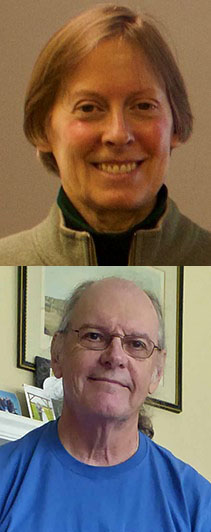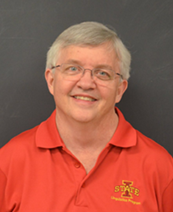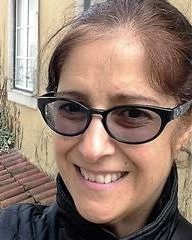Keynote Speakers
The ALT Program at Iowa State University: The Founding Story
|
Biography Carol A. Chapelle is Distinguished Professor in Liberal Arts and Sciences at Iowa State University. Recent books are Argument-Based Validation in Testing and Assessment (Sage, 2021) and The Handbook of Technology and Language Learning and Teaching (Wiley, 2017; with S. Sauro). She is editor of the Encyclopedia of Applied Linguistics (Wiley, 2013) as well as co-editor of the Cambridge Applied Linguistics Series. She is past president of the American Association for Applied Linguistics and former co-editor of Language Testing and editor of TESOL Quarterly. Her awards include the 2012 Cambridge-ILTA Lifetime Achievement Award in Language Testing, the American Association for Applied Linguistics 2015 Distinguished Service and Scholarship Award, and the 2020 Test Validity Research and Evaluation SIG Senior Scholar Award from the American Educational Research Association. Dan Douglas is a Professor Emeritus in the Applied Linguistics and Technology program at Iowa State University, specializing in assessing language ability in specific academic and professional contexts. He came to Iowa State in 1985, along with Carol Chapelle, and with her was one of the founding faculty members of the ALT program. His books include Understanding Language Testing (Routledge 2010) and Assessing Languages for Specific Purposes (Cambridge 2000). He was President of the International Language Testing Association from 2005 to 2006 and again from 2013 to 2015, and Editor of the journal Language Testing from 2002 to 2007. | 
|
From the PhD to the Career: Suggestions for Success
|
Biography John Levis is Angela B. Pavitt Professor of English. He co-edited Social Dynamics in Second Language Accent (De Gruyter Mouton), the Handbook of English Pronunciation (Wiley-Blackwell), and Pronunciation: Critical Concepts in Linguistics (Taylor & Francis). He is the author of Intelligibility, Oral Communication, and the Teaching of Pronunciation (Cambridge University Press). He initiated the Pronunciation in Second Language Learning and Teaching Conference and is founding editor of the Journal of Second Language Pronunciation. | 
|
ALT Doctoral Program’s 15th Anniversary: Coming of Age in the Virtual Era and Covid Times (or the New Normal)
|
Biography Viviana Cortes received her PhD in Applied Linguistics from Northern Arizona University in 2002 and she worked for the Program of Applied Linguistics and TESL at Iowa State University for six years before going to Georgia State in the fall of 2008. At Iowa State she taught Descriptive Grammar, Discourse Analysis, English for Specific Purposes, and Advanced Academic Writing for international graduate Students. Her research interests include the analysis of recurrent word combinations, such as lexical bundles, in different academic registers, and different types of corpus-based grammatical studies as well as the use of corpora in the teaching of academic writing. She has presented her research at numerous local conferences and in conferences and symposiums in Spain, Mexico, and Argentina. Her research articles can be found in journals such as English for Specific Purpose, Applied Linguistics, the Journal of English for Academic Purposes, Linguistics and Education, and Corpora, and in several edited books. | 
|